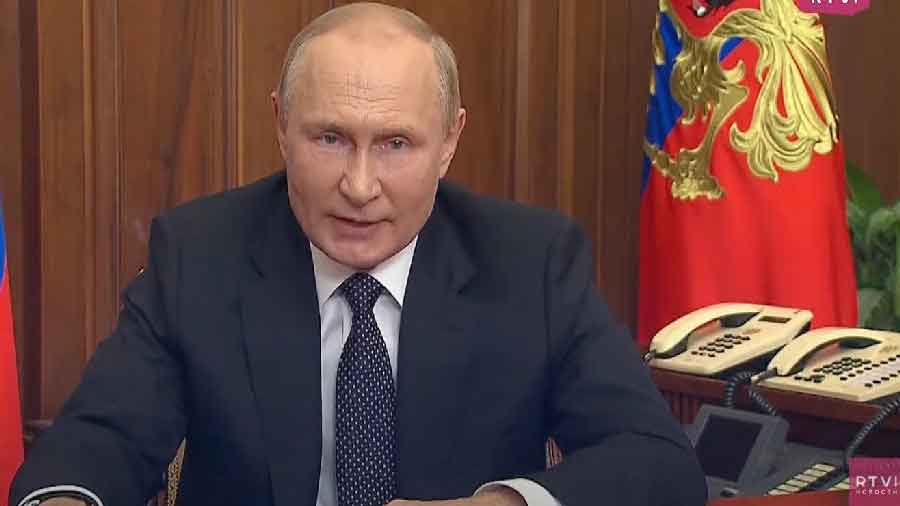With the arrest of a Wall Street Journal correspondent on Thursday, President Vladimir V. Putin signalled to the world that he was doubling down on Russia’s wartime isolation.
Russia has expelled foreign journalists in recent years, but in jailing an American reporter, Evan Gershkovich, and formally accusing him of being a spy, the Kremlin took a step with no precedent since the collapse of the Soviet Union. It was a stunningly provocative move, aimed at one of the best-known western journalists still working inside Russia and his employer, a pillar of the American news media.
Even after Russia invaded Ukraine, Putin sought to get his message out to western audiences, apparently betting that he could win some sympathy amid his conflict with their governments. But a long-held assumption that he is keen on trying to keep some lines of communication open with the West is now firmly obsolete.
Instead, Putin seems to have embraced a state of political, economic and cultural estrangement from the West more extreme than at any point since the end of the Cold War.
It is an isolation that has arrived with dizzying swiftness, one unimaginable even as Russia built up its forces on Ukraine’s borders early last year.
“An epoch of open confrontation has begun,” Dmitri A. Muratov, the Russian news paper editor who won a Nobel Peace Prize in 2021, said in a phone interview from Moscow. From the Kremlin’s point of view, he went on, “the louder the conflict, the better”.
Muratov, whose newspaper, Novaya Gazeta, was shut down by the Russian government last year, noted that even Soviet leaders like Leonid I.
Brezhnev sought ways to dampen western condemnation of their crackdowns on human rights. But on Thursday, he said, the Kremlin went ahead with Gershkovich’s arrest knowing that it would provoke a global outcry.
“Good — they’ll know that we’re not kidding,” Muratov said.
“That’s the signal being sent by the Russian government.”
The Kremlin may continue to try to shape western opinion in disguised ways, using intermediaries and disinformation, but it appears to have given up on swaying the mainstream news media.
Gershkovich’s arrest also raises the temperature of relations with the West, and the United States in particular, as Moscow’s forces struggle on the battlefield in Ukraine, where they face ever-expanding deliveries of western weaponry.
New York Times News Service










